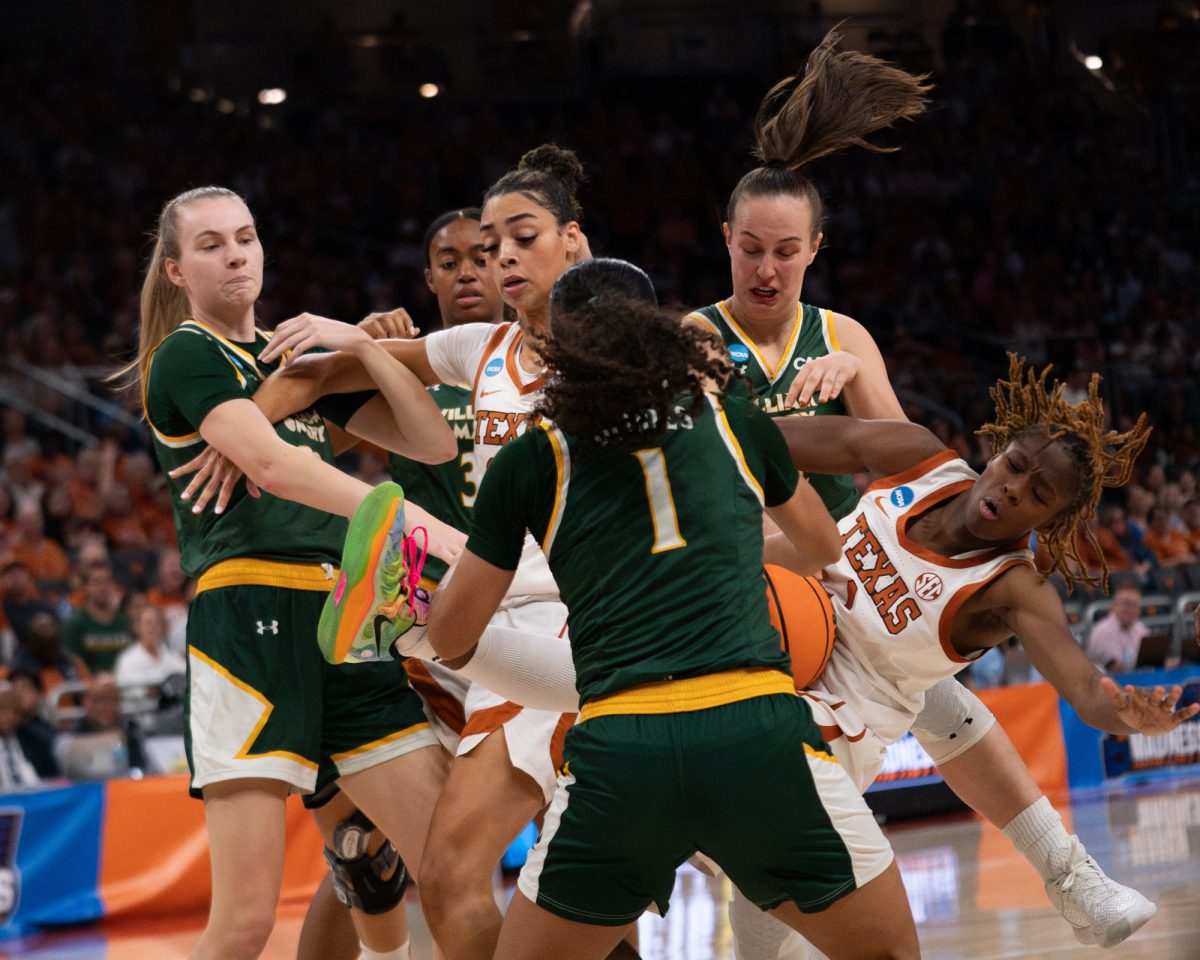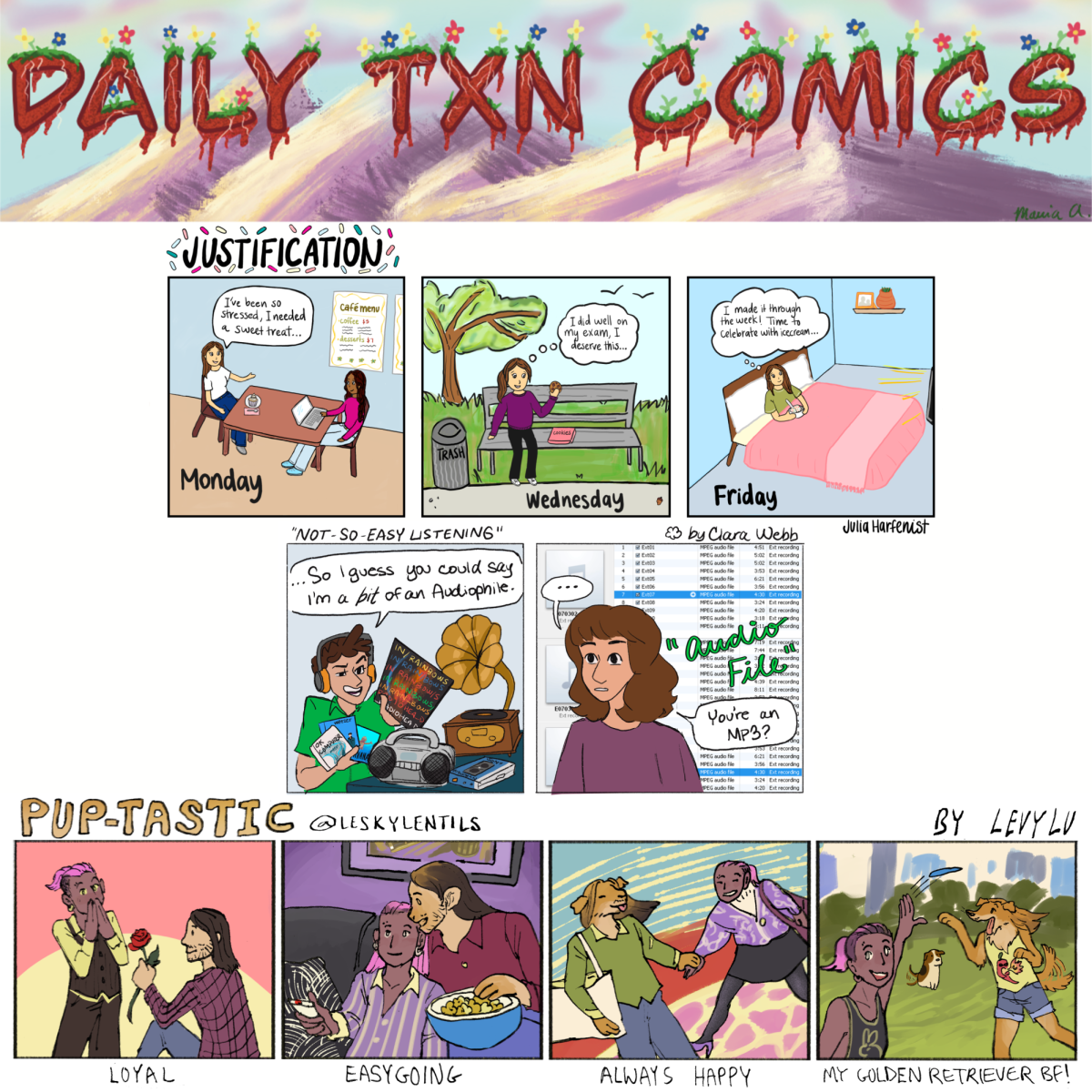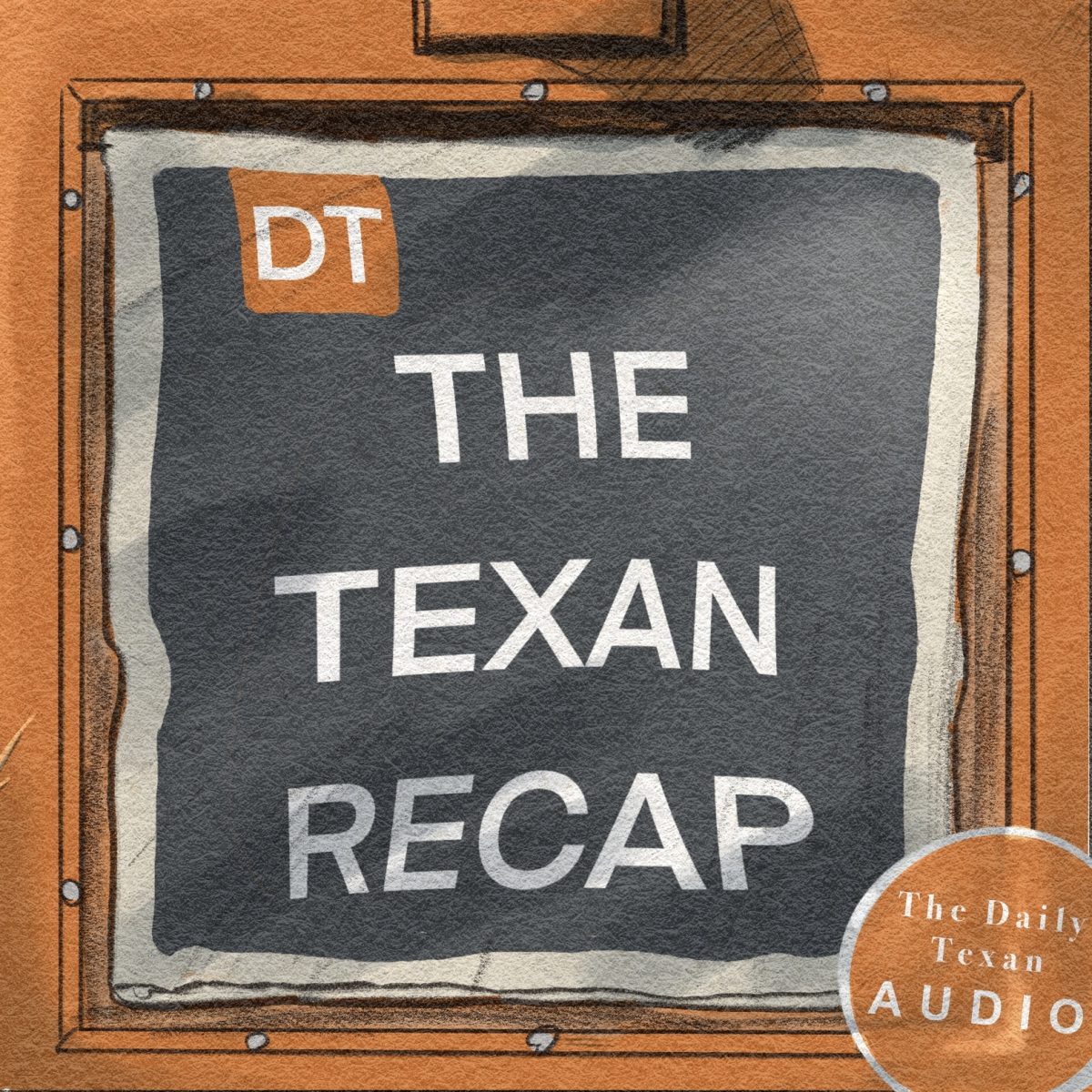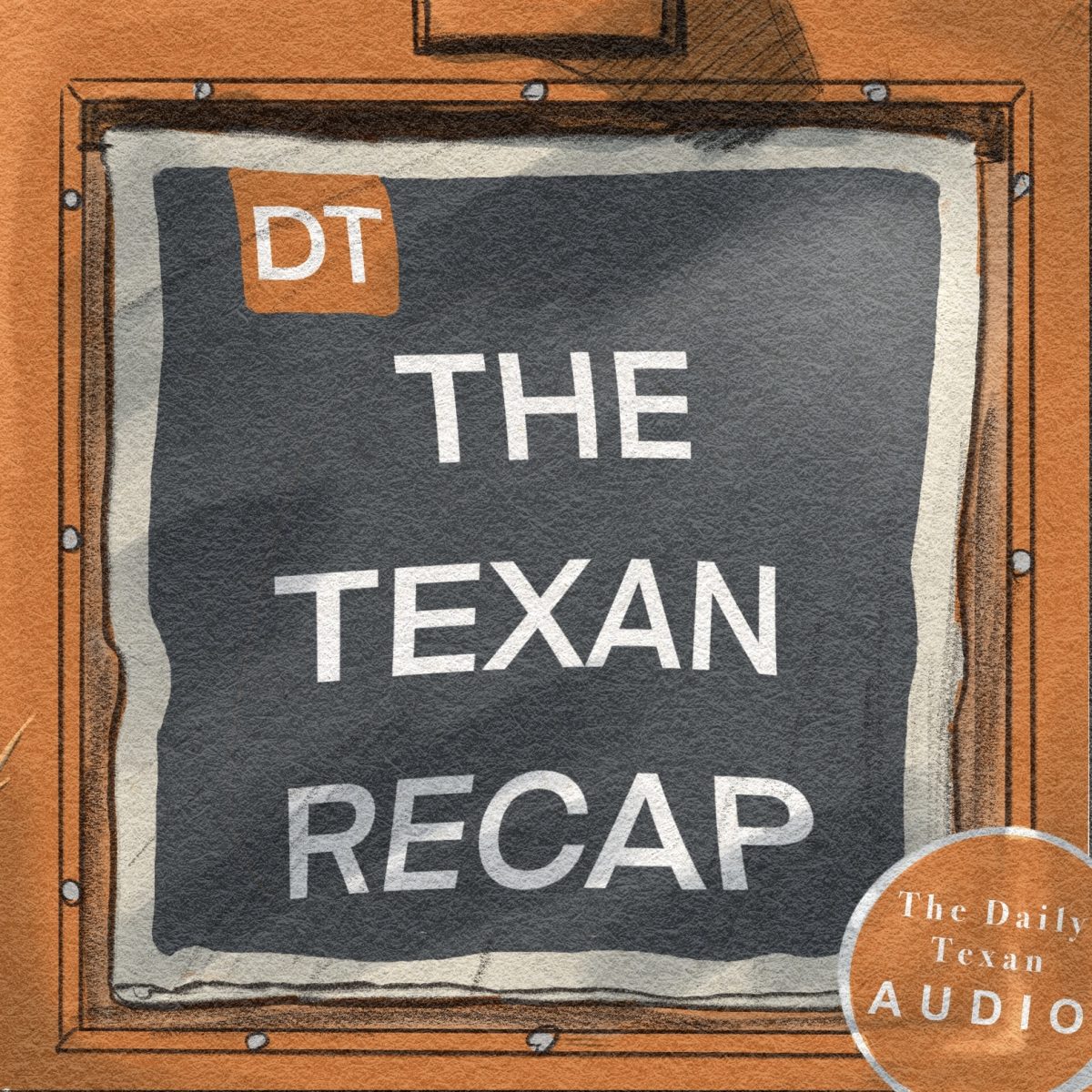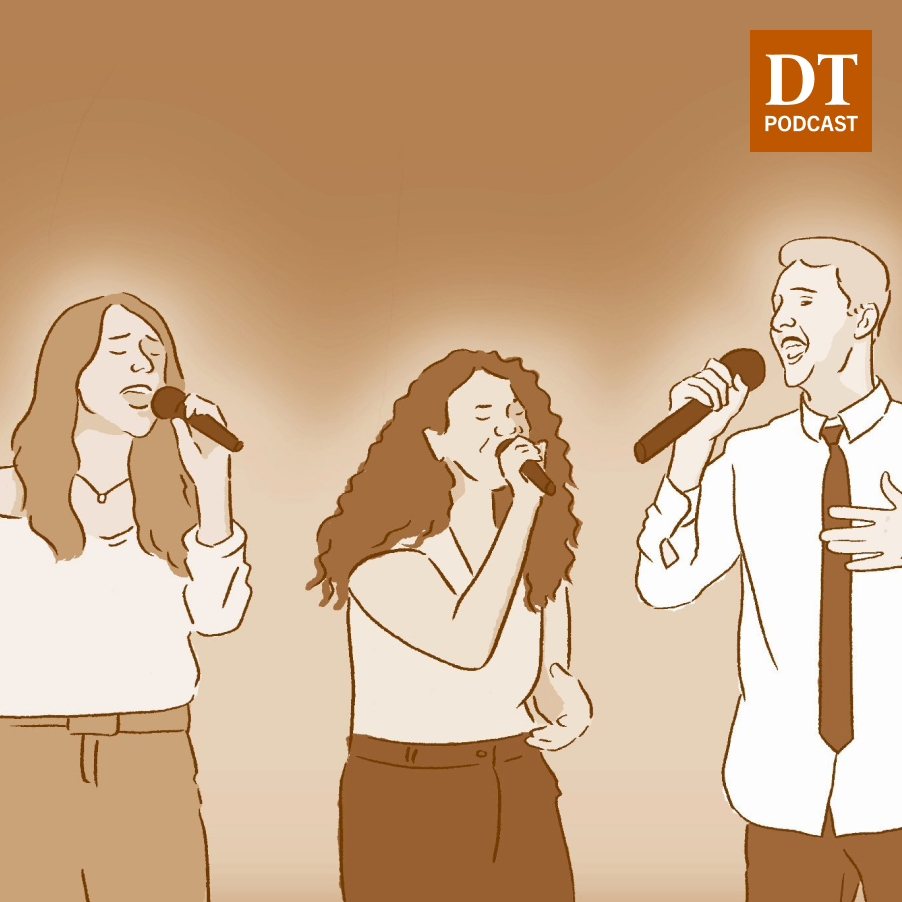*gospel music from the event intro*
Mercy Solis: On June 19th, 1865, two and a half years after the Emancipation Proclamation was signed, Union forces finally arrived in Galveston, Texas, where they informed the last group of enslaved people of their freedom. The day was memorialized as Juneteenth and became the United State’s newest federal holiday in 2021. Still, a lack of knowledge about the day remains.
The Neill-Cochran House Museum, a Greek revival-style mansion located on the edge of West Campus, seeks to change that through their Juneteenth celebration.
The celebration consisted of Texas Style brisket BBQ, a tour of the only intact and publicly accessible slave quarters in Austin, a gospel choir and the opening of their newest exhibit titled “A Juneteenth Rodeo.”
Robin Lee: “So, I’ve been to the museum several times. … When I’ve been here it’s kind of on the off days, so I’ve never seen it, um, just wide open with so many people and such a big celebration. It does feel like you’re at a family reunion or something where the community is together.”
Solis: Robin Lee was spot on. It felt like a diverse and crowded carne asada. It’s hard to say what brought people to the event, but I’m sure the free BBQ didn’t hurt.
Following the schedule, visitors then had the opportunity to tour the slave quarters. Dr. Tara Dudley, a professor at UT in the Department of Architecture has worked to restore the slave quarters over the past eight years. She explained why a tour of the slave quarters was vital to the celebration
Tara Dudley: In many ways you kind of have to understand where you’re coming from to understand where you’re going. But, I think that we’ve seen here by the broad audience, people from all walks of life and the cities that were here in Austin who really are interested in not just the building as a slave quarters building, but as I said, to understand the historic context of that building and the people that lived there and their ongoing stories. And, how important it is to place those individuals and their stories, their families, within the historical record in a way in which they have not been before.
Solis: While there, I learned about Lam, an enslaved boy who worked at the house when it was the Texas School for the Blind in 1856.
Dudley: Lam is the young boy whose name we discovered. We figure that he was, you know, he probably could have been anywhere from, let’s say 10 to 13 years of age. His exact age was never given in records but just understanding that you have this young boy who would have been coming from his home plantation to teach blind students at the Texas Blind Asylum how to weave baskets so that they could support themselves, have their own agency. But, you have this young boy who does not have that agency for himself and it’s just, you know, striking. I have teenagers, and to place myself. What did his mother think about that? What did he think about that?
Solis: I caught up with Amanda Van Buren, who happened upon the celebration on her way to an oyster-eating competition. Yes, you heard that right. I’ll let her tell you.
Amanda Van Buren: I came to Austin for an oyster eating competition and I just had a gap between my flight and the competition and I love plantation history. I love slave history. So, this was near the oyster house so I was like, let me come by.
Solis: And where are you from?
Van Buren: I’m from California, but I live in Atlanta.
Solis: Wow, and you came all the way over here for the oyster-eating competition.?
Van Buren: Yeah. *infectiously cackles*
Solis: Van Buren is no stranger to Juneteenth celebrations. Her grandma is a Texan native and ensured to show her family this important history.
Van Buren: I think it should be a federal holiday attached with information, not just everybody go out and cook out, especially people whose family has contributed to slavery. I don’t think they should just be enjoying the day without history, without education.
Solis: So, you think this is the right kind of celebration, like what we’re having here with the Tour of the slave quarters? Or what are your opinions on this?
Van Buren: Absolutely. Absolutely. And I like that it’s free, so it’s accessible for everybody to come in, learn, see, um, and just celebrate also because it is still like a good day. But people need to know.
Solis: Three men dressed in antiquated soldier uniforms caught my attention. They were at the event representing Buffalo Soldiers in the 9th Calvary. According to the National Park Service, Buffalo soldiers get their names from Native Americans who fought against them in the Plains war due to their “curly hair, which resembled a buffalo’s coat, and because of their fierce nature of fighting.” The nickname soon became synonymous with all African-American regiments formed in 1866. One of the men dressed as a Buffalo Solider was Perry Davidson II.
Perry Davidson II: Juneteenth means everything to me as far as why I exist.”
Solis: Davidson is a descendant of Jacob Fontaine. Fontaine is a legend to an Austin history geek like me. Fontaine was a leader of Wheatville, the freedman community that was what is now West Campus. He started the Austin Gold Dollar, one of the first black newspapers in the South, along with various Baptist churches. When I heard a descendant of his was at the event, I was a little starstruck.
Davidson: Last year I learned so much about him at this museum, and I want to make sure this year I asked the right questions. A lot of this stuff is not talked about amongst our family. So this museum is very important because we have a family reunion for the first time this year with the Fontaine family, and this is definitely a place that we must come to.
Solis: Sitting back on the front lawn, waiting for the gospel choir performance, sat two new Austinites, Aldrus and Nichelle Norris.
Nichelle Norris: And also, we just moved here to Austin, so it’s very interesting to hear about the history of Juneteenth in Austin, and this historical house and parts of it that, um, were slave quarters at that time
Solis: And what does Juneteenth mean to you Aldrus?
Aldrus Taylor: So, history is kind of really important to be remembered because from 1865 to now 2024 really isn’t that much amount of time and to be, um, to understand how far America has come compared to where we started from, you know, obviously have a long way to go, but where we are from where we were should be recognized and honored again. We need a lot more unity, a lot more unity.
Solis: Back to Dr. Tara Dudley. How did you think the celebration went?
Dudley: I thought today’s celebration was phenomenal. As I said, so many people came, um, took the tour asked provoking questions, and were just interested. And so it is my hope that, you know, we’re doing a lot of research here. We are not wanting to just do that research and keep it for ourselves. I really would like those people, as I said, to go out and tell their friends and family and colleagues and students and so on and so forth about this history.
*gospel music from the event outro*
Solis: The episode is a production of The Daily Texan Audio Department. If you liked this episode, make sure to subscribe to The Daily Texan on your streaming platform of choice and follow us on Twitter @texanaudio. This episode was hosted and edited by me, Mercy Solis. Thanks for listening!

